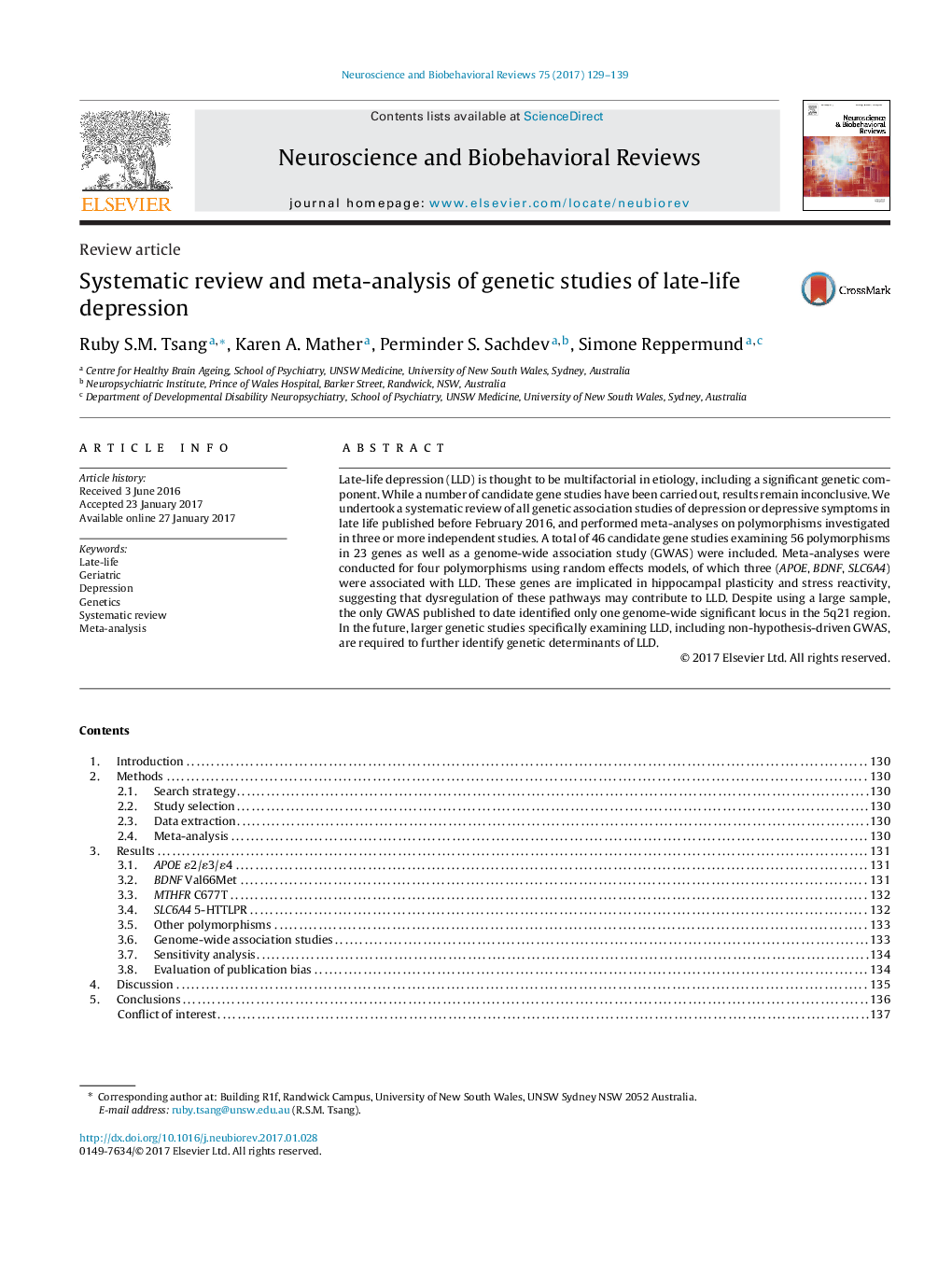| Article ID | Journal | Published Year | Pages | File Type |
|---|---|---|---|---|
| 5043504 | Neuroscience & Biobehavioral Reviews | 2017 | 11 Pages |
â¢A systematic review and meta-analysis of genetic studies of LLD were conducted.â¢The review included 46 candidate gene studies and one GWAS.â¢Meta-analysis revealed APOE, BDNF, and SLC6A4 being associated with risk of LLD.â¢One genome-wide significant signal in the 5q21 region was detected in the GWAS.â¢Abnormal hippocampal plasticity and stress reactivity are implicated in LLD etiology.
Late-life depression (LLD) is thought to be multifactorial in etiology, including a significant genetic component. While a number of candidate gene studies have been carried out, results remain inconclusive. We undertook a systematic review of all genetic association studies of depression or depressive symptoms in late life published before February 2016, and performed meta-analyses on polymorphisms investigated in three or more independent studies. A total of 46 candidate gene studies examining 56 polymorphisms in 23 genes as well as a genome-wide association study (GWAS) were included. Meta-analyses were conducted for four polymorphisms using random effects models, of which three (APOE, BDNF, SLC6A4) were associated with LLD. These genes are implicated in hippocampal plasticity and stress reactivity, suggesting that dysregulation of these pathways may contribute to LLD. Despite using a large sample, the only GWAS published to date identified only one genome-wide significant locus in the 5q21 region. In the future, larger genetic studies specifically examining LLD, including non-hypothesis-driven GWAS, are required to further identify genetic determinants of LLD.
